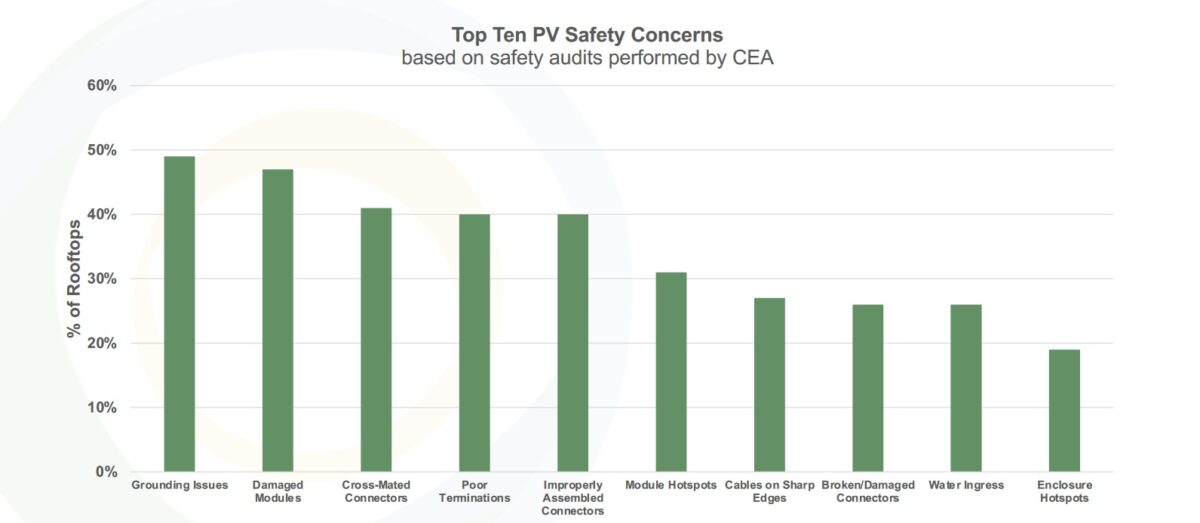From pv magazine Global
In a safety audit of more than 600 rooftop PV systems, CEA found that 97% of installations have major safety concerns. The engineering services firm performed inspections in the United States, United Kingdom, Italy, Spain, India, Japan, United Arab Emirates, Australia, Canada, Mexico, Czech Republic, Germany, Poland, and France.
It shared the main results of the audit in a new report identifying the top 10 most common safety problems in the audited systems. It said that 49% of sites have grounding issues, 47% have damaged modules, 41% have cross-mated connectors, 40% have poor terminations and improperly assembled connectors, 31% have module hotspots, 27% have cables on sharp edges, 26% have broken or damaged connectors as well as water ingress, and 19% have enclosure hotpots.
“The vast majority of these hazards are caused by poor installation practices,” a company spokesperson told pv magazine. “This means most of them can be identified and resolved relatively easily before they lead to fires, safety risks, and potentially costly liabilities.”
CEA discovered that most grounding issues occur at the inverter or equipment pad, between PV array blocks and module rows, and along extended conduit runs, addressing the most common safety concern. It also found that damage to modules is often caused by incorrect installation or cleaning methods, including walking on modules, as well as extreme weather events like hail or wind.
CEA said that sites displaying cross-mated connectors often result from an incorrect understanding of UL-listed connector pairings and the use of field-made connectors that do not match the module connector.
This content is protected by copyright and may not be reused. If you want to cooperate with us and would like to reuse some of our content, please contact: editors@pv-magazine.com.








By submitting this form you agree to pv magazine using your data for the purposes of publishing your comment.
Your personal data will only be disclosed or otherwise transmitted to third parties for the purposes of spam filtering or if this is necessary for technical maintenance of the website. Any other transfer to third parties will not take place unless this is justified on the basis of applicable data protection regulations or if pv magazine is legally obliged to do so.
You may revoke this consent at any time with effect for the future, in which case your personal data will be deleted immediately. Otherwise, your data will be deleted if pv magazine has processed your request or the purpose of data storage is fulfilled.
Further information on data privacy can be found in our Data Protection Policy.